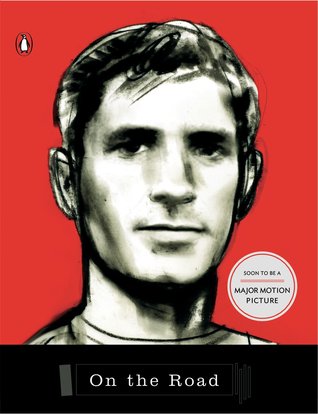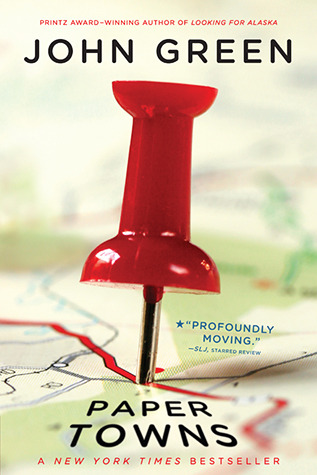Note: This was written for TOI’s Write India Campaign (Anita Nair edition). Didn’t make it to the top but it was good practice for when I grow up and become a writer.

He was the one. I woke up feeling positive. This decision was a long time coming but now it seemed natural. All of us live with our past. All of us allow it to shape our future. But some of us know how to shrug the past. I think that is who I am.
Amma and I were early risers. By 5 am I would be making us tea with milk powder as soon as she had washed the saucepan. No one in our family approved of milk powder. You might as well drink coca-cola, they seemed to think. They refused to believe that milk powder could replace milk though we had no idea where our milk came from. But this was our little secret. I had learned how to make ginger tea with milk powder during my years in the college hostel. Amma had loved it the first time I made it for her and that’s how milk powder made its way into our morning ritual. We now stashed a packet behind the jar that held tamarind, in a dark corner of the store room, away from prying eyes.
As we sipped our milky tea with a hint of ginger, I whispered to Amma, “I am going to marry Manu”. She leaned closer to me, held my arm and smiled. “If that’s what you want, that’s what we will do”. I could see her face cloud over with guilt over my first marriage although that decision was made almost a decade ago. Technically, I had agreed to the arrangement but the pressure they put a 20-year-old through was extraordinary too. While they gave me “time to decide”, they booked the venue, paid the caterers, bought jewelery and printed the cards. It’s a shame young people don’t realise that their grandparents have many last wishes.
For the family I married into, I was never good enough. I wasn’t beautiful enough, didn’t earn enough, didn’t cook well enough, wasn’t obedient enough, wasn’t cultured enough. Well-brought up as I was, I began to toe the line– first his, then his family and finally my parents. It took me 7 years to get out of that marriage. I often wonder what gave me the sense not to have a baby.
I remember the day I walked out. It was a Sunday. He had been watching TV all day and had had breakfast and lunch in front of the box. When he called out for tea, something in me snapped. I think that was my 7-year-old resilience. I was done. I have no memory of what I said standing between him and the TV. All I remember is the noise in the background, “How blue is my sapphire? Blue as the sea can be. Sea Blue Stones and Jewellers”.
There was nothing extraordinary about this ad. A little girl was asking an old man over the counter, a question. He responds with a ring in an open box saying, “Blue as the sea can be”. The camera zooms in to their logo behind him. Fin.
Ordinary as it was, this ad always took me to my dark place. I felt hopeless. Feeling-wise, it was the diametric opposite of how Pears bathing soap made me feel. The smell of Pears soap took me to a cozy place, a memory of bathing in hot water while the rain pelted outside.
I must have hardly been a teenager then. Whenever my parents fought, which was often, they would turn up the volume on the TV to make sure I didn’t hear them. But most parents underestimate their children; forget that children learn everything by watching their parents. Children know the meaning of every note of your voice, every move of your muscle.
The lasting memory from this time of my life still makes me cringe. It’s of a clumsy big girl sitting at the top of the stairs hugging herself. She is crying her heart out in mute. Oblivious, you can hear her parents arguing in the living room. You can hear them over the loud jingle on TV. “How blue is my sapphire? Blue as the sea can be. Sea Blue Stones and Jewellers.”
They are still together, my parents. They are miserable but they are still together. Apparently it was all for me. Their entire adult life has been a charade of staying married than being married. It’s like no one expected marriages to be happy. Everyone was married because they had to be. And no one was divorced because they couldn’t be. So they continue to live in limbo, pickled by antimicrobial words like culture, family, society, status and values.
That’s why happiness was never absolute in my family. It was always a function of something or someone. There was no occasion for you to just be happy. You were happy only if you did something. Or because someone gave you something. Probably why I didn’t recognise happiness when we first met.
Though we worked together, Manu and I had met at a friend’s party where we got talking about jargon at work and our general work woes. “What I really want to do is work in some place like a pet store that’s full of animals”, I said. “Me too”, said he. Before the end of the month, we were spending our Saturdays volunteering at a pet shelter close to his place. Once we wrapped up work, we would head to a roadside tea stall. Since it was Saturday afternoon and I was usually free, if he had errands to run, I would tag along. Afternoons soon turned into evenings and weekends.
When deadlines were due, I usually worked long hours. On one such occasion, when he hadn’t heard from me for almost two weeks, he turned up at home just as I was heading out for a walk. Evening walks soon became our thing. Over two years, we became inseparable.
Now I recognise happiness. Happiness is ordering mint-flavoured ice cream without having to justify myself. Happiness is wearing my most comfortable fashion-retard dungarees and not being scoffed at. Happiness is growing an identity for the first time. Happiness is the lack of expectation; living in the moment. I had all of this with Manu.
If you met Manu in a room full of people, he would be the one chatting up the awkward person in the corner. Sent away to residential school at a very young age, he had grown up to depend on no one. An eerie sense of being capable of anything, emanated from him like radiation. If he was unsure of anything, he didn’t show it. He was always calm as a lake and uncomplicated as a binary.
Never before had a man treated me with such respect. When I mentioned my first marriage to him, it was in passing. We were over at a friend’s place, and he was surprised at my party trick–opening bottles with my bangle. And I said, “I used to be married to an army man”. And that was that. That was the most I had told anyone about my marriage. And he respected that.
I don’t know when he began picking me up but I was now waiting at the end of my road. Feeling footloose, I wondered if I should post my decision on Facebook later. Of course I decided against it. I would not know how to follow it up with a picture, a date, details, anniversaries. I had no patience for baring my life online.
In that fleeting moment, standing in the shade of the giant rain tree on that August morning, I felt joy. The world was not a bad place after all. As if in a vision, it was revealed to me how it all made sense. I felt like a huge weight had been lifted off my shoulders. I hoped that when the weight resettled, it would be lighter, shared between us.
“I have made up my mind”, I said, as soon as I got into his car. He turned to me and scanned my face. He knew what I was talking about. We knew it had taken time but we had gotten there. We couldn’t stay away from each other. We both knew that we found peace in each other. We agreed that marriage was the logical next step though we had never spoken about it.
We were not renegades who belittled the institution of marriage. All of us live with our past. All of us allow it to shape our future. But some of us know how to shrug the past. I think that is who I am. With him by my side, I still had faith in the possibility of a successful marriage.
He eased the car onto the side of the road. “Are you sure?”, he asked, holding my hand as his face lit up. Before I could answer, the radio jockey took a break. “How blue is my sapphire? Blue as the sea can be. Sea Blue Stones and Jewellers.”




